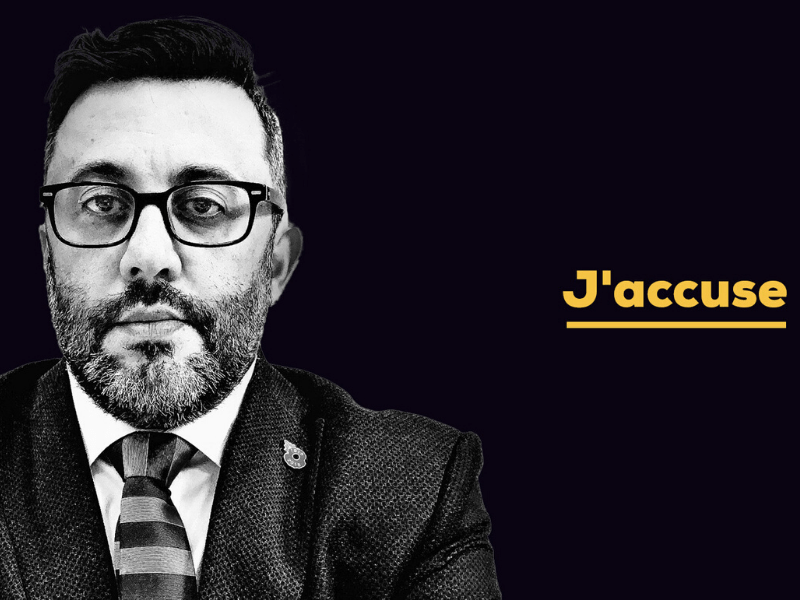I write this article 1000 days since a particularly bright light in our democracy was extinguished prematurely. There is no doubt that Daphne Caruana Galizia would have much to say about the state of the republic were she still with us. We are left to carry the torch of the quest for truth and justice – and the task is as arduous as ever.
Of the many disagreements I had with Daphne Caruana Galizia, one of the recurring ones concerned the attitude to take to the partitocracy that rules our corner of the world. Her position usually lay with opting for the lesser of two evils when push came to shove while I preferred the option of wholesale change by backing a trojan horse to break the duopoly.
This weeks’ events have served to strengthen my conviction that the underlying mother of all problems in our Constitutional democracy is the stranglehold that the Labour Party and the Nationalist Party developed over our political system over time. Our independence Constitution, that signified the end of colonial rule, was still full of post-colonial imprints taken from a model Constitution that would be adopted by other former British colonies.
Take the controversial Article 90 that has hit the news these days. Similar provisions concerning the appointment and removal of the Opposition Leader may be found in Constitutions across the Commonwealth. Where we differ from the other former colonies is in the manner in which the two behemoths of our local political scene have, over the decades, fashioned the Constitution to their service and for their needs.
The basic measure of justice in our Constitution is not justice for the people but justice for the political parties. The perverse alternation of power has meant that over the years the presence of party-political thoughts pervaded all spheres of Constitutional and civic activity.
We thus end up with government for the PLPN, by the PLPN. Does it work? Can it work? Much ink has flowed to try to explain the gradual disintegration of the system of rule of law. It is difficult to demonstrate the debilitating effects on democracy when the main recipients of this kind of politics have been drawn into the tribalist vision and are too busy applauding their hero of the moment.
However, with the Article 90 conundrum, we have a clear example of these effects. It is important in such situations to take a step back and view the issue objectively. Note, for example, how the Article 90 question has been shifted onto Party territory.
The peak of absurdity has been reached by those who somehow would have a Party statute trump the highest law of the land. By their reasoning, if a Constitutional interpretation would have the effect of rendering the statute inapplicable then it is the Constitution that must cede.
The arrogance behind this reasoning is only eclipsed by the second type of arrogance – the rent-a-pundit from the opposite side of the House who, for reasons that are blatantly obvious, will ‘interpret’ the Constitution in order to best fit his favoured faction.
Incidentally, I correctly predicted a new wave of ‘Constitutional experts’ as the story unfolded. Constitutional interpretation in our country though, for the most part, relies on the very same ‘experts’ who have abetted the transformation of our highest law into a carpet for our political parties on which to wipe their feet.
If our basic measure remains justice for whichever Party is most in favour at the time, then we will be orphaned of any proper Constitutional development. A Constitution that originally had little time for political parties in parliament could easily lend itself to a reading that goes beyond any reasonable doubt.
The lawyers and experts rushing to lend their hand to their faction of preference do no justice to an already tattered Constitutional approach. I cannot blame free thinkers who look at the mess of contradictions and who wonder whether a Constitution should not be clearer.
In 2014, the United Workers Party (UWP) when in opposition in tiny Saint Lucia (almost 200,000 population, independent since 1979) had a similar problem to the PN’s. The UWP Party Leader (Stephenson King) was voted out of his position as Opposition Leader in the House. The parliamentarians who voted for Gale Rigobert to replace him then sent a letter to the Governor General informing her of their vote.
The Saint Lucia Constitution has remarkably similar terms to Malta’s Article 90. This did not prevent the Governor General from appointing Rigobert (notwithstanding King’s protestations) as Opposition Leader in the House.
I have explained elsewhere how reading an infinite loop into the Constitution (removal and reappointment of Delia) is not only unconstitutional but crazy. The only reason one would suggest such a reading is in the interest of preservation of Party prerogatives.
The PN house is in disorder. That is a fact. The issue of leadership of the PN is still wide open and remains a Party matter – separate from the constitutional issues being discussed. The issue of the leadership of the Opposition in the House transcends the Party and should be solved objectively in the interests of a proper functioning system of law.
I say that knowing fully that in this Lilliputian land of tribal partitocracy we are far from any kind of objective result.
“It is a maxim among these lawyers, that whatever hath been done before may legally be done again: and therefore they take special care to record all the decisions formerly made against common justice and the general reason of mankind. These, under the name of precedents, they produce as authorities, to justify the most iniquitous opinions; and the judges never fail of decreeing accordingly.” – Jonathan Swift, Gulliver’s Travels
—
Editorial update: In a statement this evening President George Vella announced his decision that Adrian Delia could not be removed as Leader of the Opposition because the role should be held by the leader of the largest Party in Opposition, despite a majority of MPs having nominated Therese Comodini Cachia as an alternative. The President confirmed that meetings held with the Opposition parliamentary group showed Delia no longer enjoyed their support. He justified his decision to depart from what is written in the Constitution on “the principle of necessity” – undermining the supreme law of the land for his view of “continuity” and “stability”.












